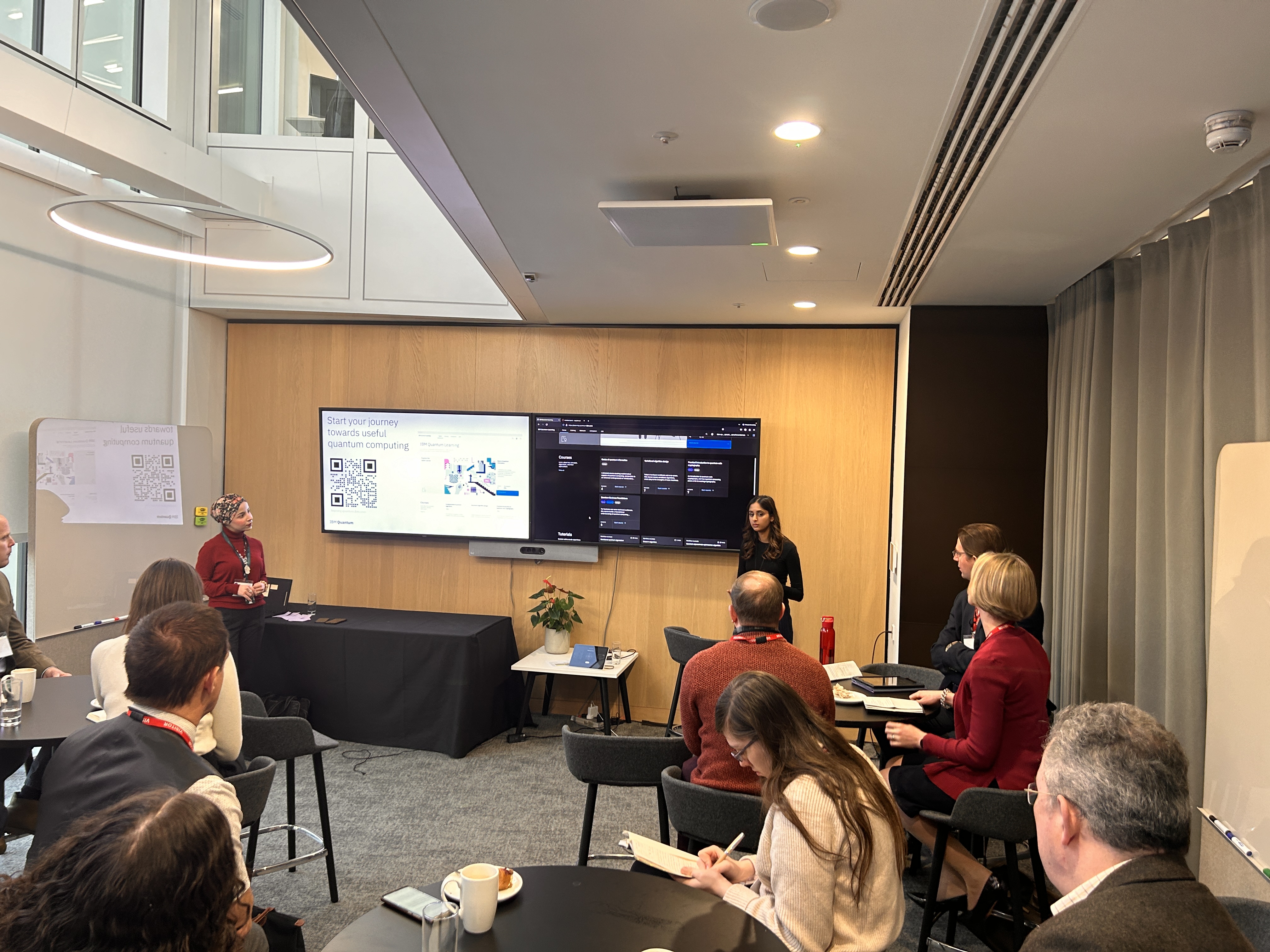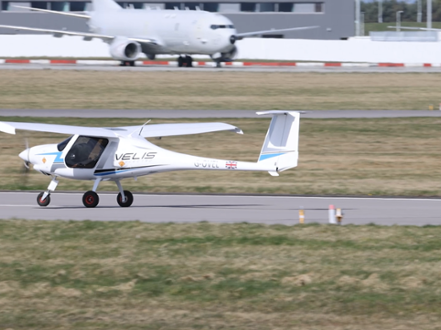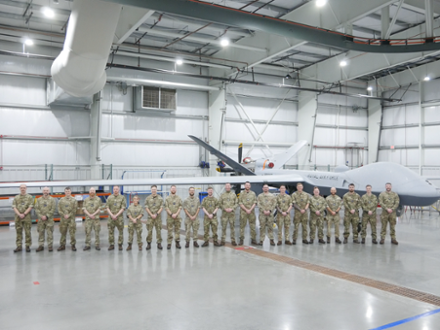Within a decade, quantum technologies will revolutionise our approach to complex problem solving and enable us to seize new opportunities in the fields of sensing, timing, imaging, and communications.
That’s according to the UK National Quantum Strategy, which then highlights the associated threats to cryptography and the means by which we protect and secure our digital capabilities.

This formed the backdrop for the recent inaugural Quantum Computing (QC) Fair for Defence, which IBM hosted in collaboration with RAF Digital. 100+ delegates from across Defence, academia and industry came together to dive into the world of Quantum Computing, learn from experiences across government and other sectors, explore use cases and develop ideas and next steps.
Despite the theory of quantum computers advancing in the 1980s and 1990s, it's with recent industry breakthroughs that QC begins to move from the labs into the world of Defence and business. Applicable across a broad spectrum of industry sectors, QC is important in the world of defence due to its potential to revolutionise cryptography, communication, optimisation, and simulation tasks. The development of quantum-resistant cryptography will become crucial for maintaining secure defence communications in the future, which is reflected in the UK National Quantum Strategy that looks to establish the UK as a leader in the field.

Recognising the growing opportunities to examine the potential of QC, RAF Digital joined forces with IBM to raise awareness across the RAF and the broader Defence community. As a leading organisation in the field of quantum technologies, IBM was recently announced as a partner to the National Quantum Computing Centre (NQCC), with a remit to support organisations in understanding and applying the power of QC and to provide access to its QC capabilities. This made it ideally placed to deliver two Quantum 101 awareness training sessions to 40 RAF technical experts and senior leaders. Spurred on by the enthusiastic reception, IBM also organised a Quantum Computing Fair for Defence at its Innovation suite in London.
The Fair aimed to catalyse the formation of the Defence Quantum Computing Community and progress thinking about how QC could be applied within the Defence context, amplifying our understanding of the UK’s quantum computing capabilities and intent.
“I am hugely grateful to IBM for hosting the Fair and to all those who attended. Without doubt, this event has energised discussions about how to exploit such technologies, both to advance Defence capabilities and in support of the broader UK strategy. As Quantum forges towards maturity, the MoD has the opportunity to access Quantum Computing expertise and services, grow skills, and develop use cases; we now have an identified community of interest who can collaborate to formalise our approach in anticipation of what this technology will bring."
Group Captain Ramsden
AH RAF Digital Capability
The immersive and interactive day comprised of presentations from leading figures across government, industry, and academia, along with workshops hosted by IBM’s network of Quantum Ambassadors and a discussion panel with each of the Defence delegations represented. Rachel Maze, DSIT, outlined the 10-year vision of the UK National Quantum Strategy to build UK to be a world leading quantum-enabled economy by 2033. Geoff Barnes, NQCC, described their exciting work, such as developing a prototype for an intermediate scale full-stack quantum computer. Chris Moore Bick, DST, shared information about the recent refresh of the Defence Command paper. Dr. Phillip Intallura, HSBC, presented how HSBC uses QC to enhance cyber-resilience and then Dominic O’Brien, Quantum Computing and Simulation Hub, Oxford, showed how the Hub is now a vibrant network with 17 academic and 28 industrial partners.
Dr. Arif Mustafa, RAF Director Digital, hosted a stimulating panel discussion that demonstrated the value of collaboration in QC and generated valuable insights, with interactive break-out workshops exploring topics such as QC use cases for Defence, programming a Quantum Computer, building a QC workforce and Quantum Safe for Defence.
“It was a real pleasure to be able to work with the RAF Digital team deliver the Quantum Computing Fair, an event designed by Defence for Defence, and we are very grateful to all speakers and delegates. With engaged representation and lively debate throughout the day, the main objective to catalyse the cohering of Defence’s Quantum Computing Community has been surely met. IBM is committed to helping make the NQCC the focus for the adoption of QC by Government and extending its education and training resources to accelerate upskilling in key sectors. We look forward to continuing to work with Defence as it explores and exploits the potential QC represents.”
Ed Gillet
IBM








